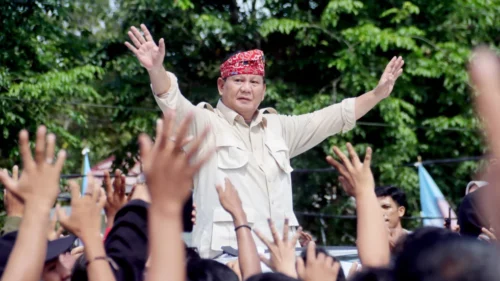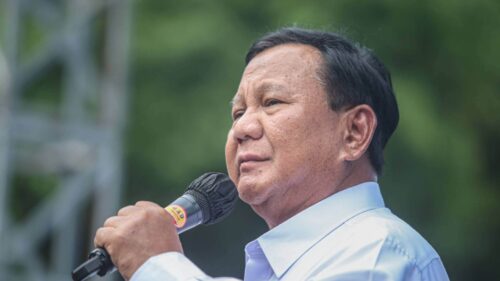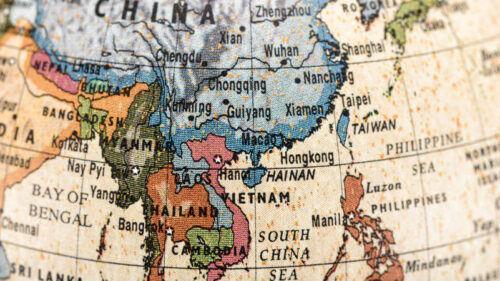A month after Indonesia’s 2024 general election, then-President-elect Prabowo Subianto sent a fresh signal on the country’s foreign policy. It was potentially different from that of former President Joko Widodo (properly known as Jokowi) and dispelled the principle of Bebas dan Aktif — “independent and active.” How has Prabowo redirected Indonesia’s foreign policy, and how significantly could it impact Indonesia?
Prabowo has been keen on global issues since he was a minister of defense. In 2019, he actively engaged in various international forums, such as the Shangri-La Dialogue. He led Indonesian delegations in negotiations with multiple countries and has consistently demonstrated Indonesia’s commitment to supporting Palestine. During his tenure, Prabowo visited 20 countries, most of which are strategic partners of Indonesia. He aims to convey that his presidency will prioritize multilateralism while simultaneously fostering strong and cooperative relations with those countries.
In early November 2024, Prabowo started his first international trip to China, followed by the United States, United Kingdom, Middle East and South America for the APEC meeting and G20 Summits. In his debut, Prabowo succeeded in dealing with these countries, including economic cooperation. With China, for example, Prabowo brought over $10 billion in investment after meeting with President Xi Jinping and others.
However, Prabowo’s visit raises questions about Indonesia’s stance toward China and the US. Some feel that Prabowo lacks the vision to maintain these rivals.
During his campaign, Prabowo pledged to implement a “good neighbor policy” guided by the principle that a thousand friends are too few and one enemy is too many. He wants Indonesia to foster good relations with many countries and promote peace across various regions. This policy objective is primarily driven by economic interests, with the aim to attract substantial investments.
Breaking from Jokowi’s practices
Prabowo has been in office for over four months now. In that time, his foreign policy has undermined traditional practices. His approach is quite different from Jokowi’s.
First, Prabowo chose Sugiono as Indonesia’s foreign minister, replacing his predecessor, Retno Marsudi. Sugiono is viewed as a minister without experience on foreign agendas — Indonesia has not picked a foreign minister without a diplomatic career since former President Alwi Shihab in 1999. Some are concerned about Sugiono’s view on responding to global issues.
Additionally, this indicates that Sugiono merely acts as an “ideological son” of Prabowo. Prabowo seems to be a “despot.” For him, everything must proceed according to his framework, even if it leads to future disasters.
Second, under Prabowo’s administration in Kazan, Russia, Sugiono argued that Indonesia would join BRICS+ — which it did this January — and participate in every forum. He stated that the inclusion does not reflect Indonesia’s stance on a particular bloc but rather kindles the principle of Bebas dan Aktif. Additionally, Sugiono declared Prabowo’s message that Indonesia wishes to “eliminate colonization,” and that it supports Palestine and Lebanon.
In the Jokowi era, instead of joining BRICS+ as Prabowo desired, Indonesia decided to join the Organization for Economic Cooperation and Development (OECD). While still in office, Jokowi attended a BRICS high-level summit in South Africa on August 23, 2024. There he argued that Indonesia did not reject joining BRICS+ but instead considered it. Although BRICS+ represents more than 25% of global trade and covers over 40% of oil, Indonesia pondered being a member of G20 and MIKTA — the alliance of Mexico, Indonesia, South Korea, Turkey and Australia. However, BRICS+ has problems, such as the continuous dispute between China and India.
Indonesia’s desire to join BRICS+ broke Jokowi’s habit. Some argue that it could omit the principle of Bebas dan Aktif and attract the US’s attention. Indonesia’s potential accession to BRICS+ poses economic risks, as US President Donald Trump’s new administration plans to impose high tariffs on the organization due to its perceived opposition to using the US dollar.
Prabowo should recognize that BRICS+ is a “revisionist” group strategically designed to serve the interests of China and Russia.
Joint development with China
Prabowo should understand that Indonesia still requires the support of the US to effectively address China’s actions in the North Natuna Sea.
The “joint development” between Indonesia and China in the North Natuna Sea began on November 9, 2024. In this area, China’s claim of nine-dash lines — nine dotted map lines that mark China’s claimed portion of the South China Sea — violates the 1982 United Nations Convention on the Law of the Sea (UNCLOS). Indonesia argued that it could not be interpreted as recognizing China’s claim. Simultaneously, Indonesia and China reached an “important common understanding” and agreed to establish an Inter-Governmental Joint Steering Committee to operate relevant cooperation.
However, some are still concerned about the response. There is no bold statement or guarantee that Indonesia will not rely on China’s claim. Furthermore, Indonesia must negotiate maritime boundaries with China. As the proverb states, “The homeowner will not negotiate with the thief who has ransacked his house.”
Prabowo’s foreign policy is deeply concerning. As the world stands at a crossroads due to prolonged conflicts, Prabowo should place Indonesia on the right path, aligned with national interests. This can only happen if he dares to reconsider his foreign minister, reassess the plan to join BRICS+ and review the joint development of the North Natuna Sea with China.
[Lee Thompson-Kolar edited this piece.]
The views expressed in this article are the author’s own and do not necessarily reflect Fair Observer’s editorial policy.
Support Fair Observer
We rely on your support for our independence, diversity and quality.
For more than 10 years, Fair Observer has been free, fair and independent. No billionaire owns us, no advertisers control us. We are a reader-supported nonprofit. Unlike many other publications, we keep our content free for readers regardless of where they live or whether they can afford to pay. We have no paywalls and no ads.
In the post-truth era of fake news, echo chambers and filter bubbles, we publish a plurality of perspectives from around the world. Anyone can publish with us, but everyone goes through a rigorous editorial process. So, you get fact-checked, well-reasoned content instead of noise.
We publish 2,500+ voices from 90+ countries. We also conduct education and training programs
on subjects ranging from digital media and journalism to writing and critical thinking. This
doesn’t come cheap. Servers, editors, trainers and web developers cost
money.
Please consider supporting us on a regular basis as a recurring donor or a
sustaining member.
Will you support FO’s journalism?
We rely on your support for our independence, diversity and quality.







Comment
Dear Gufron and Habib,
Let us agree with everything you propose. Still, I have a deeper question. The US is turning isolationist. China is the 800-pound gorilla in your neck of the woods. What should be the guiding principle of Indonesian foreign policy during such a time?
Thanks!
Thanks Atul.
The government of Indonesia does not mention specific principle to respond Trump’s foreign policy, right now. We still argued that Indonesia still keeps its principle of bebas-aktif. Despite debatable over the principle, it is the best way for Indonesia to balance China and US powers.